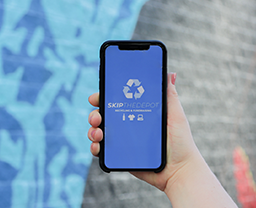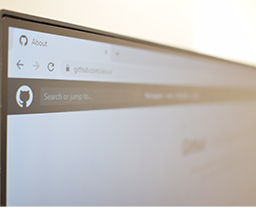
App Development

Hybrid

Native iOS

Native Android

Firebase

Web Apps
What Is App Development?
For many companies, app development and its processes need to be unique to the company. As a result, out-of-the-box software will not always suit your company’s needs. And even if it does now, your business requirements can evolve outside of that box, so why not look towards a custom app that grows with your needs and doesn’t constrict you?
This is where custom app development comes into play. App development is an intricate process of forging a computer program or a set of programs tailored to your business’s needs. Whether this is for finances, operations, streamlining workflows, or something else entirely, we will leave it to you.
The History Of App Development
Mobile app development began to take flight in 1983 when Steve Jobs first envisioned the evolution of a new digital movement at a conference speech in Aspen. Jobs predicted that software would eventually be downloaded through phones. He saw the apps and app stores coming to fruition before they were even a thought. He was right. Mobile app development began in 1997 with apps such as Snake on the popular Nokia 6110 phone. By 2008 when the App Store first took off, there were over 500 apps to choose from.
Web applications began in the early 1990s with static HTML text languages. In 1995, JavaScript added the dynamic elements to the web pages, 1996 saw Macromedia Flash allowing web pages to add animations. In 1999, the concept of web apps in the Java language came to life. Since that time, web applications have added more coding languages and robustness to each new design.
The history of app development has many unique stories engrained through its timeline, and if you want to learn more about app development, please feel free to check out the video below!
Types Of App Development
Hybrid
This is a blend of both native and web solutions where the application’s core can be written using web code (HTML and JavaScript), which can be placed into the native application. Instead of your app being shown in the customer’s browser, it is run from within the app and its own browser.
Native iOS
When thinking of a native application, it is created in the native development language and tools specific to a platform. An example of this would be a native iOS application created using the Swift code language.
Native Android
As with native iOS, the development language and tools are specific to the Android platform, which includes the most prominent language currently, Kotlin.
Native Firebase
Google utilizes this platform for building mobile and web applications. Firebase is known for its flexibility and scalability, and the platform is also applicable to Android.
Web App Development
Web app development occurs when your application resides on remote servers and is delivered to the user's device entirely over the Internet.
How Does App Development Help My Business?
Applications can be custom-tailored to your organization to do a wide array of tasks such as monthly expense scheduling, sales reporting, workflow automation, and project tracking. The list and the possibilities are endless. However, it is important to find a company that has a proven track record of providing this service in multiple industries prior to buying. Although application development can be expensive, it is still a worthwhile venture.
Our Experience In App Development
At LT3 ATG, we have the experience and track record when it comes to app development, including hybrid, native iOS, native firebase, and web app development for various startups, mid-sized businesses, and enterprises. Feel free to view our case studies and their impact on the organizations and the industries we have serviced. Already know where you want to start? Book your consultation today!
App Development
Related Services
Related Articles
Related Projects
Check out our other projects →LT3 ATG
Ready to get started?
Building your vision starts with a conversation. We're always happy to chat.














